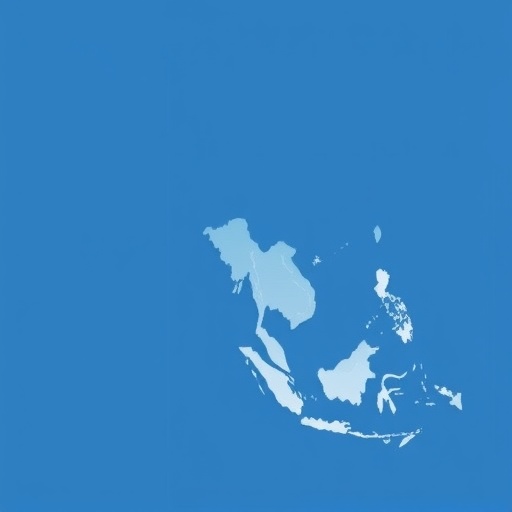A groundbreaking advancement in understanding Asia’s terrestrial carbon dynamics has emerged through the collaborative efforts of researchers from Osaka Metropolitan University and partner institutions. Introducing JapanFlux2024, an unprecedented open dataset that consolidates 683 site-years of eddy covariance measurements from 83 observation sites across Japan and neighboring East Asian regions, this initiative represents the most comprehensive effort to chronicle terrestrial ecosystem carbon flux in Asia over the past three decades. By capturing detailed insights into carbon dioxide exchanges between land and atmosphere, this dataset is set to revolutionize climate science with a regionally focused, data-rich foundation never before available.
Terrestrial ecosystems such as forests, peatlands, and farmland function as critical regulators in the global carbon cycle, acting simultaneously as carbon sinks, absorbing CO2, and as sources, releasing it back into the atmosphere through respiration processes. Understanding the magnitude and variability of these carbon fluxes is essential for constructing accurate carbon budgets and refining climate change projections. Yet, despite Asia’s vast and ecologically diverse landscapes, this region has historically suffered from underrepresentation in global flux datasets, impairing comprehensive global carbon assessments.
The eddy covariance method underpins the JapanFlux2024 dataset, a state-of-the-art observational technique that directly measures exchanges of greenhouse gases, water vapor, and energy at fine temporal resolutions between ecosystems and the atmosphere. This approach uses high-frequency sampling of vertical wind speed and gas concentrations to calculate fluxes, offering critical real-time insight into ecosystem metabolism and their response to environmental variables. While Europe and North America boast extensive standardized flux networks, Asia’s observations have remained fragmented and heterogeneous, limiting their utility in broader climate models.
JapanFlux2024 bridges this critical gap by harmonizing decades of disparate datasets collected since 1990, incorporating observations not only from Japan but also from adjacent Asian territories including parts of China, Russia, Mongolia, and Southeast Asia. Data integration followed international FLUXNET standards to ensure quality and comparability, while adapting to regional ecosystem specificities and instrumentation nuances. This standardized approach enables seamless incorporation into global climate research frameworks and fosters cross-continental comparisons.
Beyond providing carbon dioxide flux measurements, JapanFlux2024 delivers a comprehensive suite of environmental variables, including sensible and latent heat fluxes, all recorded at half-hour intervals. These variables are essential for understanding the energy balance of ecosystems and their physiological processes. High-resolution temporal data allow researchers to capture diurnal and seasonal dynamics, improving climate model parameterizations and remote sensing calibration efforts. This extensive temporal coverage also facilitates the study of trends and anomalies driven by climatic extremes or anthropogenic impacts.
The construction of JapanFlux2024 relied on decades of multinational, interdisciplinary collaboration, uniting ecologists, atmospheric scientists, and data engineers. This collaborative spirit echoes the broader goals of the FLUXNET consortium, emphasizing open data sharing and methodological transparency to accelerate scientific progress. Lead scientist Masahito Ueyama, an associate professor at Osaka Metropolitan University’s Graduate School of Agriculture, highlighted the significance of this achievement in overcoming long-standing uncertainties in Asia’s carbon budget due to inconsistent data availability.
By supplying a robust, high-quality data repository, JapanFlux2024 empowers researchers to dissect the continent’s complex carbon dynamics with unprecedented granularity. Such understanding is pivotal for addressing pressing climate challenges related to carbon sequestration capacity, ecosystem resilience, and feedback mechanisms. Accurate regional flux data also inform national and international environmental policies geared toward carbon neutrality, sustainable land management, and climate adaptation strategies.
The dataset’s temporal span, covering more than three decades, equips scientists with the ability to observe long-term trends and shifts potentially attributable to climate change, land-use changes, and economic development patterns. This historical perspective is invaluable for validating Earth system models and improving predictive capabilities that underpin climate mitigation policies. Furthermore, the dataset is expected to catalyze remote sensing studies by providing ground-based reference measurements, enhancing satellite data interpretations of carbon dynamics across heterogeneous Asian landscapes.
JapanFlux2024 represents a paradigm shift in Asian terrestrial ecosystem monitoring, establishing an indispensable resource for the global scientific community. This initiative showcases Japan’s leadership in environmental data science and reflects a broader commitment across Asia to strengthen climate research infrastructure. By openly sharing this comprehensive dataset, researchers hope to inspire parallel efforts throughout the region and foster a cohesive scientific network equipped to tackle climate complexities at multiple scales.
Looking forward, the continuous expansion and updating of JapanFlux2024 will further enrich our understanding of the biosphere-atmosphere interface amidst rapid environmental change. The dataset promises to aid in refining carbon accounting methodologies, improving estimates of carbon offset potentials, and contributing to the strategic design of nature-based climate solutions. Ultimately, it embodies a major stride toward elucidating Asia’s critical role within the global carbon cycle and securing a sustainable climatic future.
In sum, JapanFlux2024 stands as a testament to the power of sustained scientific collaboration and data harmonization, offering a rare and invaluable window into the terrestrial carbon exchanges of one of Earth’s most ecologically and climatically complex regions. This open-access dataset will undoubtedly serve as a cornerstone for diverse research fields ranging from biogeochemistry to climate policy, fostering insights essential for global climate action in the decades to come.
Subject of Research: Not applicable
Article Title: The JapanFlux2024 dataset for eddy covariance observations covering Japan and East Asia from 1990 to 2023
News Publication Date: 21-Aug-2025
Web References: http://dx.doi.org/10.5194/essd-17-3807-2025
Image Credits: Osaka Metropolitan University
Keywords: JapanFlux2024, eddy covariance, carbon flux, terrestrial ecosystems, Asia, carbon cycle, FLUXNET, climate modeling, carbon dioxide exchange, environmental monitoring, dataset, Osaka Metropolitan University




